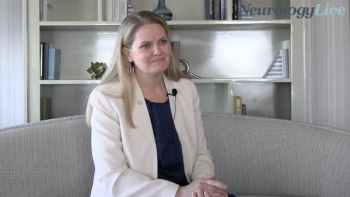
At CTAD 2025, the senior vice president of medical and scientific relations at the Alzheimer's Association talked about how structured lifestyle interventions improved blood pressure and sleep in the U.S. POINTER study. [WATCH TIME: 4 minutes]

At CTAD 2025, the senior vice president of medical and scientific relations at the Alzheimer's Association talked about how structured lifestyle interventions improved blood pressure and sleep in the U.S. POINTER study. [WATCH TIME: 4 minutes]
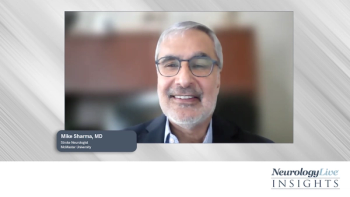
In this final iteration, neurologist Mike Sharma, MD, reflects on how rapid diagnostics, comprehensive vascular management, and novel therapies are redefining the approach to secondary stroke prevention.
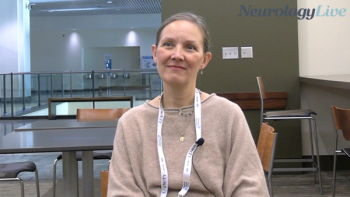
At NSGC 2025, the research director at the Clinic for Special Children discussed the clinic’s approach to accelerating the diagnosis and treatment of spinal muscular atrophy. [WATCH TIME: 5 minutes]
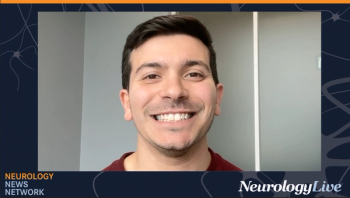
Neurology News Network for the week ending November 29, 2025. [WATCH TIME: 4 minutes]

The director of the Les Turner ALS Center at Northwestern Medicine talked about his lab’s preclinical research on identifying genetic targets for neurodegenerative diseases. [WATCH TIME: 5 minutes]

The medical director of the stroke recovery program at JFK Johnson Rehabilitation Institute at Hackensack Meridian Health discussed the role health insurance plays in stroke survivors receiving rehabilitation care. [WATCH TIME: 4 minutes]

The pediatric epileptologist at Boston Children’s provided clinical commentary on the potential reasons behind variability existed in using sequential versus combination therapy, third therapies, and adverse event monitoring for infantile epileptic spasms syndrome. [WATCH TIME: 3 minutes]

In episode 3, Mike Sharma, MD, reviews findings from the phase 2 PACIFIC-STROKE trial and explains how its results informed the design and dose selection for OCEANIC-STROKE.
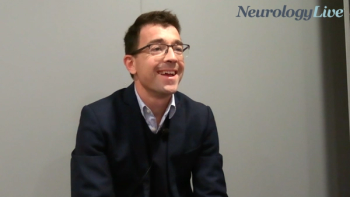
The neurologist at the Multiple Sclerosis Center of Catalonia talked about the challenges of defining seronegative in new diagnostic criteria for neuromyelitis optica spectrum disorder [WATCH TIME: 5 minutes]
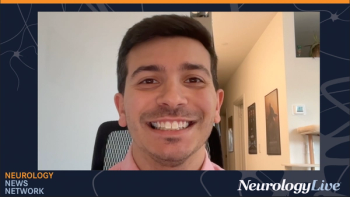
Neurology News Network for the week ending November 22, 2025. [WATCH TIME: 4 minutes]
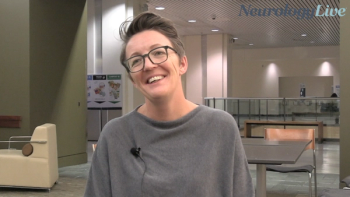
The senior director of research and real world data at Genome Medical talked about the benefits and challenges of genetic counselors adopting artificial intelligence tools. [WATCH TIME: 5 minutes]
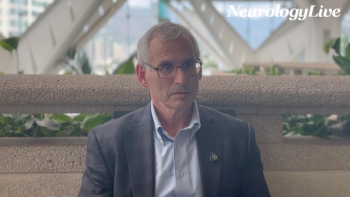
The chief medical officer at Ventyx Biosciences provided commentary on early clinical findings supporting NLRP3 inhibition with VTX3232 as a potential disease-modifying approach for Parkinson disease. [WATCH TIME: 4 minutes]
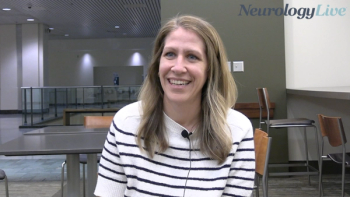
The genetic counselor in the Department of Ophthalmology at the University of Pittsburgh Medical Center talked about the evolving role of genetic counselors in guiding patients through gene therapy. [WATCH TIME: 4 minutes]
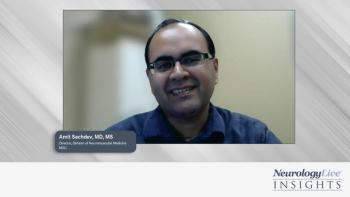
Expert discusses individualized treatment strategies that balance efficacy, tolerability, and lifestyle considerations to move patients beyond maintenance plateaus in CIDP care.

The medical director of the stroke recovery program at Hackensack Meridian Health JFK Johnson Rehabilitation Institute provided clinical insights into her presentation focused on expanding rehab care for stroke survivors across settings. [WATCH TIME: 5 minutes]
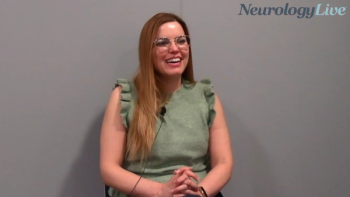
At ECTRIMS 2025, the associate professor at Pontifical Catholic University of Chile discussed global challenges in diagnosing multiple sclerosis early. [WATCH TIME: 5 minutes]
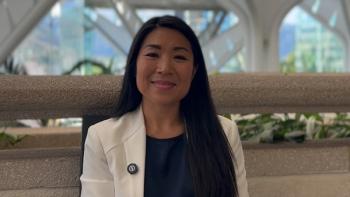
At MDS 2025, the lead specialist for patient insights at Lundbeck spoke about the importance of considering patient and caregiver voices when designing clinical trials. [WATCH TIME: 3 minutes]

The chief medical officer at Dyne Therapeutics highlighted z-rostudirsen’s ability to restore dystrophin and improve function across DMD severity levels, setting the stage for a potential 2026 accelerated approval. [WATCH TIME: 4 minutes]

This segment outlines the objectives, patient population, and conduct of the phase 3 OCEANIC-STROKE trial evaluating asundexian for secondary stroke prevention.
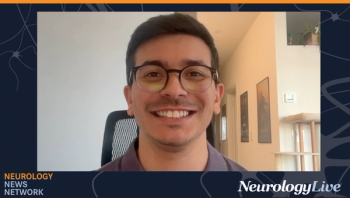
Neurology News Network for the week ending November 15, 2025. [WATCH TIME: 4 minutes]
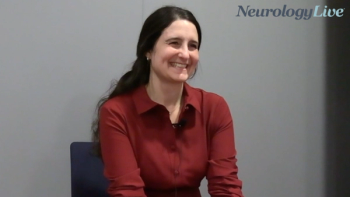
At ECTRIMS 2025, the staff neurologist at Cleveland Clinic’s Mellen Center for MS discussed developing a machine-learning tool to predict individualized risk of recurrent disease activity in multiple sclerosis. [WATCH TIME: 6 minutes]
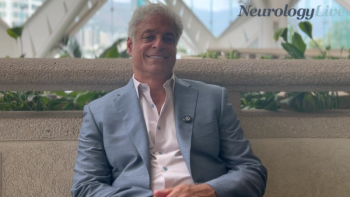
At MDS 2025, the chairman and CEO at ABLi Therapeutics discussed phase 2 results of risvodetinib, a highly selective c-Abl inhibitor, in patients with Parkinson disease. [WATCH TIME: 5 minutes]
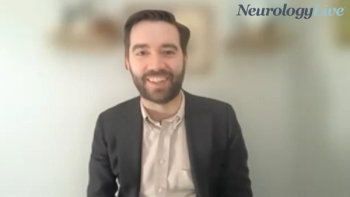
The executive vice president of public policy and advocacy at the Muscular Dystrophy Association discussed how collaboration can improve policy, funding, and care for patients with neuromuscular diseases. [WATCH TIME: 7 minutes]

Expert discusses how CIDP clinical trials have progressed toward patient-focused designs that strengthen scientific rigor while safeguarding participants.
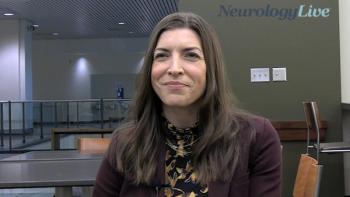
The president of the National Society of Genetic Counselors discussed the 2025 NSGC conference, highlighting AI and gene therapies as key topics, while noting the importance of genetic counselors in clinical care. [WATCH TIME: 4 minutes]
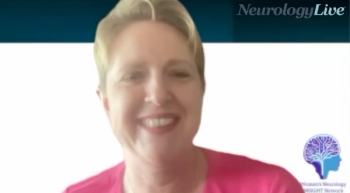
The co-founder of the Women Neurologists Group shared her experiences from the 4th Annual Women in Neurology Conference in Colorado Springs, highlighting its focus on education and wellness. [WATCH TIME: 6 minutes]

The chief medical officer at Dyne Therapeutics discussed the ACHIEVE trial’s early results, highlighting z-basivarsen’s potential to meaningfully improve muscle and CNS function in patients with myotonic dystrophy type 1. [WATCH TIME: 3 minutes]

The vice president and Asset Head of Rare and Ultra-Rare Diseases at UCB discussed the landmark FDA approval of doxecitine/doxribitine, the first-ever therapy for thymidine kinase 2 deficiency (TK2d). [WATCH TIME: 3 minutes]
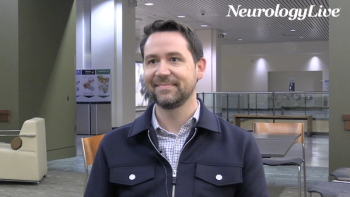
The vice president of Rare Disease Strategy at Worldwide Clinical Trials discussed how genetic counselors are becoming integral to the design, execution, and interpretation of clinical research. [WATCH TIME: 3 minutes]

In this initial episode, neurologist Mike Sharma, MD, explains the biological rationale for inhibiting factor XIa and how its unique mechanism may allow stroke prevention with minimal bleeding risk.